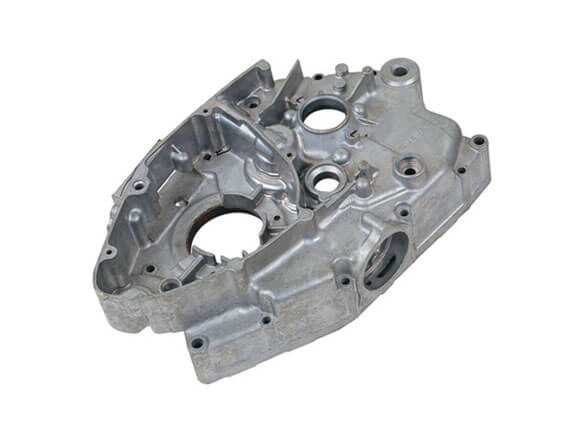Exploring Aluminum Foundry operations that deliver top-tier casting results
Wiki Article
Just How Factory Services Enhance Manufacturing Efficiency and High Quality in Industrial Applications
Shop solutions play a necessary function in boosting production efficiency and top quality across numerous industrial applications. By implementing advanced metal spreading strategies, these solutions guarantee components are manufactured with accuracy and uniformity. This not just minimizes preparations however likewise decreases waste, fostering much better cooperation between shops and manufacturers. The influence of high-quality components on operational efficiency elevates vital concerns about the future of commercial production. What technologies exist ahead in this advancing landscape?The Role of Shop Services in Streamlining Manufacturing Processes

Foundries often supply proficiency in alloy advancement, enabling makers to make use of sophisticated products that enhance item efficiency. The collaboration between manufacturers and factories cultivates a far better understanding of manufacturing demands, bring about enhanced processes and boosted item styles. By leveraging shop solutions, suppliers can attain higher versatility, adjust to transforming market needs, and keep competitiveness in the industry. On the whole, the function of shop solutions is necessary in promoting a more economical and effective manufacturing landscape.
Advanced Technologies in Shop Workflow
Ingenious modern technologies are changing factory operations, substantially enhancing productivity and precision. Automation plays a necessary duty, with robotic systems streamlining repetitive jobs such as molding and product handling. Furthermore, innovations in computer-aided style (CAD) and computer-aided production (WEB CAM) systems allow shops to create complicated geometries with greater precision and decreased product waste.The integration of man-made intelligence (AI) and equipment learning improves top quality control by keeping track of procedures in real-time and predicting possible defects prior to they occur. Using innovative products, such as lightweight alloys and composites, better improves the performance characteristics of cast items.
In addition, 3D printing innovation is reinventing prototyping and tooling, enabling for quick customization and minimized lead times. Collectively, these innovative technologies not only elevate production effectiveness however additionally assure that the end products fulfill strict quality standards, positioning shops at the center of modern commercial applications.
Lowering Lead Times With Efficient Factory Practices
Efficient factory practices play an essential function in reducing lead times within production settings. By applying structured manufacturing processes and progressed scheduling techniques, producers can boost workflow and enhance source allocation. These renovations not only accelerate outcome however additionally add to total functional efficiency.Streamlined Production Processes
Streamlining production processes is crucial for lowering lead times in the manufacturing field. Reliable shop techniques, consisting of maximized workflows and source monitoring, play a critical duty in accomplishing this goal. By decreasing waste and enhancing communication among groups, factories can substantially boost their functional performance. The implementation of standardized treatments additionally adds to consistent top quality and faster turnaround times, allowing suppliers to respond even more swiftly to market needs. Furthermore, the combination of advanced innovations, such as automation and real-time monitoring systems, helps in identifying traffic jams and facilitating prompt interventions. In general, a focus on streamlined manufacturing processes not only speeds up preparations yet likewise boosts the general competitiveness of industrial applications, guaranteeing that products meet consumer assumptions efficiently.Advanced Organizing Techniques
Reliable production processes normally lead makers to explore advanced organizing techniques as a way to further reduce lead times. By employing sophisticated algorithms and software, shops can enhance workflows, aligning manufacturing routines with demand projections and resource accessibility. Techniques such as Just-In-Time (JIT) organizing reduce inventory prices while making sure prompt product shipment, thereby enhancing functional efficiency. In addition, integrating real-time data analytics allows factories to anticipate possible hold-ups and adjust schedules proactively. This flexibility not just improves operations however also increases overall productivity. Furthermore, collective planning with suppliers and consumers can promote an extra synchronized supply chain, more reducing lead times. Ultimately, these advanced scheduling techniques empower foundries to accomplish higher performance and superior top quality in their production processes.Ensuring Accuracy and High Quality in Metal Spreading
Assuring precision and high quality in steel casting requires a thorough approach that incorporates every phase of the production procedure. This process starts with cautious layout and engineering of the molds, ensuring they can endure the liquified steel's temperature level and pressure. The selection of high-grade basic materials is important, as contaminations can compromise the last product.As soon as the materials are prepared, specific temperature level control throughout melting and putting is essential to achieve the wanted residential properties in the cast steel. Monitoring solidification and air conditioning rates further warranties dimensional accuracy and surface area coating.
Quality guarantee techniques, such as non-destructive his response testing and examination, are important to recognizing issues early in the procedure. aluminum casting. Furthermore, using skilled personnel who recognize the subtleties of steel spreading adds significantly to keeping high criteria. In general, these techniques collectively improve the dependability and performance of cast parts in numerous industrial applications
Lessening Waste and Maximizing Source Use

In addition, reusing scrap metal within the shop itself can significantly decrease waste, transforming byproducts into useful sources. Lean producing principles also contribute to squander reduction by streamlining procedures and getting rid of unnecessary steps, resulting in extra efficient procedures.
Routine maintenance of equipment assurances peak performance, preventing failures that can result in thrown away products. By concentrating on these approaches, factories not just lower costs yet additionally add to lasting practices, lining up with the growing need for ecologically responsible production techniques in commercial applications.
The Competitive Benefit of High-Quality Elements in the marketplace
High-grade components supply a significant affordable benefit in the factory market, where accuracy and sturdiness are extremely important. Producers that focus on remarkable materials and workmanship can enhance item performance and integrity, leading to increased customer fulfillment. This benefit is particularly obvious in industries such as automobile and aerospace, where component failure can have catastrophic repercussions.Premium components often result in lower maintenance prices and extended product life-spans, which can be attractive selling factors for potential clients. As market demands expand for reliable and lasting modern technologies, the focus on top quality ends up being a lot more critical. Firms that purchase high-grade foundry services not only boost their manufacturing processes yet find out likewise separate themselves from competitors who may sacrifice quality for cost savings. Subsequently, the commitment to premium parts eventually translates into a more powerful market position and long-term business success.
Frequently Asked Inquiries
What Kinds of Products Do Foundry Provider Normally Collaborate With?
Foundry services usually work with steels such as light weight aluminum, steel, iron, and brass, in addition to numerous alloys. They additionally handle products like composites and ceramics, dealing with varied commercial requirements and specs in making procedures.Exactly How Do Foundry Provider Influence Overall Supply Chain Management?
Foundry solutions substantially boost supply chain management by enhancing product sourcing, lowering lead times, and ensuring regular top quality. Their capability to offer customized services fosters partnership amongst stakeholders, inevitably improving general operational performance and responsiveness in manufacturing.What Industries Benefit Many From Foundry Services?
Industries such as automobile, construction, consumer, and aerospace items greatly gain from shop services. These fields depend on precision castings to satisfy stringent high quality criteria and enhance their general manufacturing processes and item efficiency.Are Shop Providers Sustainable and Eco-friendly?
Factory services can be eco pleasant and sustainable, specifically when utilizing innovative innovations and procedures - Aluminum Casting Company. Technologies such as reusing products, reducing emissions, and enhancing power usage add to minimizing their ecological influence in commercial applications
How Can Business Select the Right Factory Company?
Firms can Homepage select the right factory provider by assessing experience, production capacities, quality certifications, technology utilized, client evaluations, and sustainability practices while guaranteeing positioning with their certain task needs and lasting organization goals.Foundry solutions play a necessary role in boosting production efficiency and quality across various industrial applications. The partnership in between suppliers and factories promotes a much better understanding of manufacturing needs, leading to enhanced processes and boosted item designs. Efficient shop techniques play an essential duty in lessening lead times within manufacturing environments. By employing advanced algorithms and software, foundries can enhance workflows, aligning production timetables with demand forecasts and source availability. Firms that spend in top notch factory solutions not only boost their production procedures but additionally separate themselves from rivals who might sacrifice high quality for price savings.
Report this wiki page